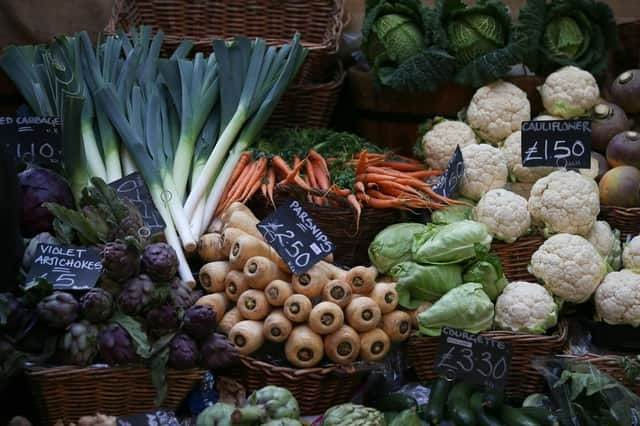As crops are left to rot in fields, it's time to realise food is too cheap in the UK – Stephen Jardine


Farmers in Scotland warn crops are being left to rot in the fields because of a shortage of workers to pick them and lorry drivers to take them away.
The East of Scotland Growers cooperative says farmers have already dumped or abandoned 1.5 million cauliflowers and 5.5 million broccoli heads. Kids who hate veg may be rejoicing at that news but, in a hungry world, it is a scandal.
Advertisement
Hide AdAdvertisement
Hide AdThere is no question, Brexit is partly to blame. The shortfall of delivery drivers, exacerbated by post-Brexit EU immigration rules guidance, means that even if vegetables are picked they are not reaching shelves.
But our departure from the EU doesn’t tell the whole story as the driver shortage is pan-European. Research by logistics analysts Transport Intelligence found that Germany currently needs up to 60,000.
EU membership was a useful means of plugging gaps in our domestic labour market but it simply delayed an inevitable conversation about how much we value what we eat and drink.
In recent weeks some lorry drivers have been offered 40 per cent pay rises to keep them in the job. Why did it take a crisis in the sector to ensure these key workers in the supply chain are properly rewarded for a stressful job and long nights away from home and family?
For far too long, food in this country has been undervalued. In the UK we spend about eight per cent of household income on food, that’s less than any other country in Europe. The Greeks, Italians and the Portuguese pay out almost twice as much as we do.
Earlier this month, chef Tom Kerridge hit the headlines for charging £87 for a steak in his two Michelin star pub. Few people will have the stomach for that but his justification was spot on. Kerridge said his costs are high because he buys the best produce and pays his staff well. “Perhaps the real cost of dining should be addressed,” he added.
His critics say the price is a con but how about the pub chain claiming they can do a pint and a steak for a tenner? Someone is being dishonest when it comes to the economics of food and it’s not Tom Kerridge.
If the days of cheap labour in the HGV market are at an end, the ripple needs to carry through the rest of the food sector, from picking to processing. Migrant workers from the EU won’t be coming back soon so we need to make food, drink and hospitality an attractive choice for the domestic workforce and pay is a key factor.
Advertisement
Hide AdAdvertisement
Hide AdIt will mean the costs of that being passed on to consumers in terms of higher food prices but, frankly, that’s long overdue.
For the low paid, that sounds terrifying. Far too many are already struggling and rely on food banks to survive but making food cheaper and lower quality is not the solution.
They need proper state economic interventions to help them live decent lives. For the rest of us, the days of cheap food and labour may be coming to an end. And that’s a good thing.
A message from the Editor:
Thank you for reading this article. We're more reliant on your support than ever as the shift in consumer habits brought about by coronavirus impacts our advertisers.
If you haven't already, please consider supporting our trusted, fact-checked journalism by taking out a digital subscription.
Comments
Want to join the conversation? Please or to comment on this article.
